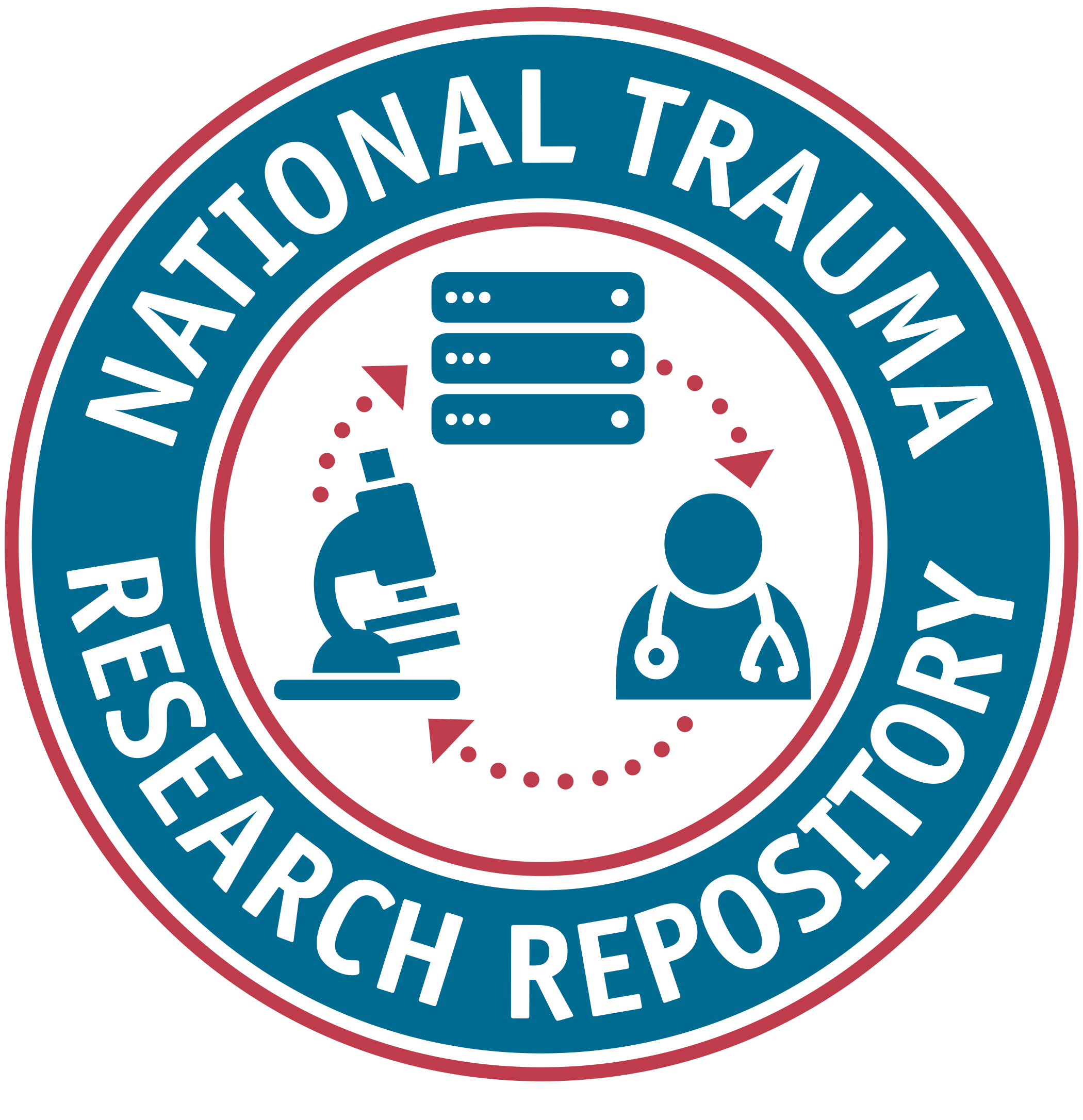The National Trauma Research Repository (NTRR) stores the study data produced in the course of trauma research and makes it available for subsequent use, increasing its utility and enabling researchers to meet the data sharing requirements of funders and journals. The NTRR helps the U.S. government, academia and industry maximize the return on investment in trauma research by optimally leveraging data that is painstakingly collected.
Investigators are encouraged to apply for accounts, review and adopt the trauma core common data elements and the relevant basic common data elements, and upload data sets from their closed clinical trials and retrospective studies. As you are developing your study protocols, check the NTRR’s data dictionary and adopt the common data elements and definitions that make sense for your study. Following publication of your primary publications, upload your data into the NTRR to make it available for secondary use.
Help build the NTRR into a robust resource for the entire trauma community!
NTRR FUNCTIONS
DEFINE DATA: The NTRR provides a dictionary of core common data elements, definitions and permissible values that investigators are encouraged to collect in their trauma studies. Harmonizing data elements across studies enables data aggregation for secondary analyses. Additional basic data elements are defined and recommended for studies within various environments of care.
CONTRIBUTE DATA: Prior to study launch, investigators can review data elements and form structures in the NTRR and find alignment where possible. Investigators may submit data collected through REDCap or by other means, or they can use the ProFoRMS live data capture system within the NTRR to manage data collection directly within the repository.
ACCESS DATA: Researchers can use the Query tool to select and filter data from studies stored in either or both the NTRR and the Federal Interagency TBI Research Informatics system (FITBIR) based on their research question of interest, then pull the chosen data set from the repository for secondary analysis.
To learn more, click on Get Started, then Videos to watch webinars on various aspects of the system.



